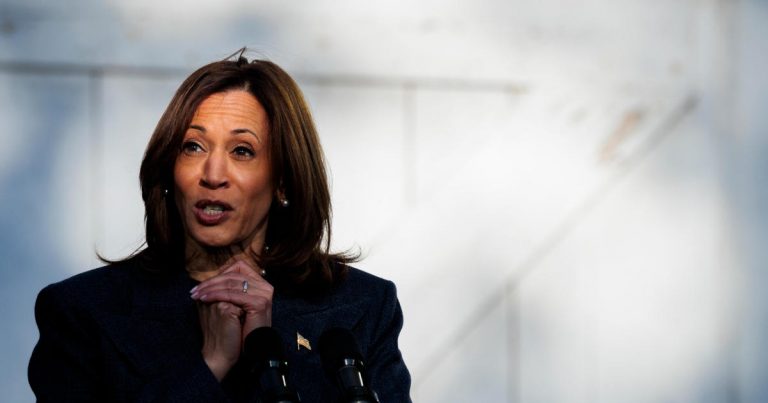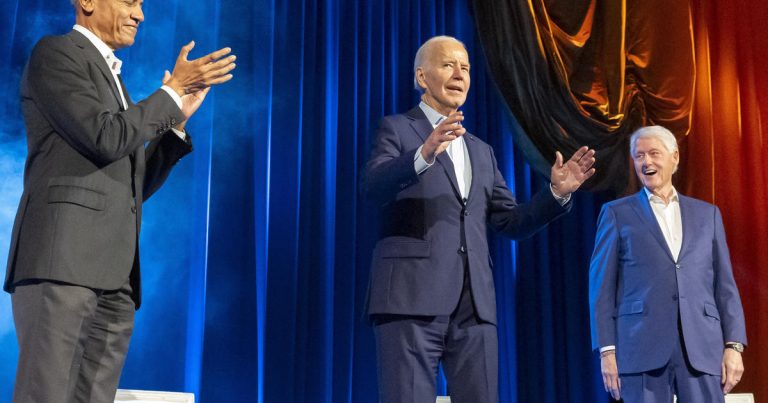Voters concerned about medical bills before election
Healthcare is a pressing concern for many Americans, yet it hasn’t received the attention it deserves in the ongoing presidential campaign. While the economy remains a top priority for voters, the rising costs of medical care continue to worry individuals across the nation.
A recent nationwide poll conducted by West Health and Gallup revealed that two out of three U.S. adults are anxious about facing significant debt due to a major health event. Additionally, a large proportion of respondents expressed dissatisfaction with the lack of focus on healthcare in the campaign.
To gain deeper insights into voters’ healthcare worries as the 2024 campaign draws to a close, KFF Health News collaborated with research firm PerryUndem to conduct focus groups with 16 participants from diverse backgrounds. The participants, comprising supporters of both Republican and Democratic candidates, shared a common grievance – the apparent neglect of addressing how elected officials would assist those struggling to afford medical treatment.
Bob Groegler, a 46-year-old residential financing professional from eastern Pennsylvania, voiced his concerns about the inadequacy of discussions regarding healthcare costs. He worries that his mounting medical bills might hinder his ability to retire comfortably.
Former President Donald Trump, the Republican nominee, has criticized existing healthcare laws without presenting a detailed healthcare agenda. On the other hand, Vice President Kamala Harris, a Democrat, has proposed specific measures aimed at lowering patients’ expenses, building on legislation signed by President Joe Biden.
In 2022, Biden signed the Inflation Reduction Act, which capped out-of-pocket expenses for Medicare enrollees on prescription drugs and extended federal aid to facilitate health insurance purchases through the Affordable Care Act. However, this aid will expire if not renewed by Congress and the President.
Harris pledged to enhance existing aid, provide additional support to Medicare enrollees requiring home care, and continue federal initiatives to alleviate medical debt, which burdens approximately 100 million Americans. Despite these proposals, many focus group participants expressed ignorance regarding these policies, citing domination of campaign discussions by contentious issues like abortion.
Renata Bobakova, a 46-year-old teacher and mother from Cleveland, shared her skepticism about the efficacy of Harris or Trump in alleviating medical expenses, dubbing them “out of touch with reality.” She highlighted the unpredictability of healthcare costs, which she stated constantly preoccupies her thoughts.
Bobakova, originally from Slovakia, recounted opting to give birth in Europe to evade exorbitant medical costs in the U.S. Other participants recounted acquaintances leaving the country to procure cheaper prescription drugs, underscoring the inflated healthcare expenses within the U.S.
Kevin Gaudette, a 64-year-old retired engineer from North Carolina, attributed high medical costs to the profit-driven motives of hospitals, drug companies, and insurers. Martha Chapman, a fellow retiree from Philadelphia, lamented about corporate greed hindering efforts to reduce patient expenses.
As the presidential campaign nears its conclusion, Michael Perry, co-founder of PerryUndem, noted the prevailing cynicism among focus group participants toward Harris, despite her efforts to foreground policy seriousness and empathy toward economic struggles. Perry added that even Democratic-leaning participants indicted both candidates for overlooking healthcare concerns, signaling a disconnect between the candidates and the electorate.
Despite the prevailing skepticism, participants expressed hope that healthcare, a vital issue, would eventually seize the attention of elected officials, transcending political divides. Tom Zawierucha, a building services worker from New Jersey, emphasized the need for peace of mind when it comes to healthcare expenses, a sentiment echoed by many.
In conclusion, healthcare remains a critical but largely unaddressed concern in the presidential campaign. As voters eagerly await concrete plans and assurances from candidates, the hope persists that one day, healthcare costs will cease to be a constant source of anxiety for Americans.
KFF Health News is committed to delivering comprehensive healthcare journalism and operates as a core program under KFF, a trusted source for health policy research, polling, and journalism.








